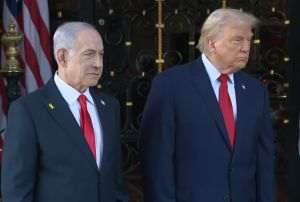Adrian Oros:
• "We have a polarized agricultural ownership"
In the future National Strategic Program for the 2021-2027 period, we will need to get rid of the subsidy chasers, so that the money dedicated to farmers gets where it needs to go, according to Mr. Adrian Oros, minister of Agriculture and Rural Development.
He said: "Just like other countries, we have subsidy chasers that we will have to get rid of in the future National Strategic Plan, and as much of the funds dedicated to farmers reach those that do indeed work their lands".
Adrian Oros says that Romania has two forms of financing for agriculture available: "We have the National Strategic Plan, which involves 20.678 billion Euros in the next seven years, of which: 13 billion Euros for direct payments through Pillar I, and 7.67 billion Euros through Pillar II; and the National Recovery and Resiliency Program, of which so far we have succeeded in getting from the Government 6.5 billion Euros for the infrastructure for the handling of the water infrastructure and 750 million Euros for the national network for the collection, storage, promotion and distribution of Romanian products".
• "We have a very low degree of association"
One of the major problems of Romanian agriculture is the polarization of ownership, according to Mr. Adrian Oros, who says: "Following the analysis of the needs in the sector, we have identified a few problems, distinctive characteristics that Romanian agriculture has. First of all, we still have a polarized ownership: 97% of farmers work 40% of the land in farms of less than 50 hectares; 0.56% of the farmers work 40% of the surface in bigger farms, of more than 300 hectares, and only 2% work 21% of the arable surface in medium-sized farms. That is the state of ownership in Romania".
Mr. Oros said: "We have a very low rate of association, we have very few cooperatives, a rather unconsolidated environment. We want this consolidation of the associative environment to be accelerated because it is very important". The Minister of Agriculture further says: "We have a problem with labor, but we also have an aging of the rural population and of farmers: only 29% of the rural population is aged below 40 and only 11% is aged below 55. We have a high abandoning rate of areas with natural constraints".
Adrian Oros also further warns that our agriculture is still dependent on the weather, and "in 2020 we have fully felt that. Our irrigation system is non-functional and nearly destroyed".
He also mentioned that we have a trade balance deficit, which started "picking up speed" since 2015-2016. "Last year we had a deficit of 1.3 billion Euros", says the Minister of Agriculture, and he said: "Romanian products are insufficiently promoted and sold".
• "1-1.2 million hectares of the spring harvests - affected by the drought"
Minister of Agriculture says that we are going through a context "somewhat special context" this year, because, on top of the evolution of the Covid-19 pandemic, which has produced substantial damage in agriculture and the food industry, came, in the area of the Black Sea, in Dobrogea, southern Moldova and part of Oltenia, an extreme drought, which has caused huge damage to farmers, both for the autumn of 2019 harvests, as well as for those of the spring of 2020.
"Whereas for the crops of the autumn of 2019 the affected surface was 1.11 million hectares, it would seem that the figure for this spring's crops affected by drought, is similar - 1-1.2 million hectares, in particular corn and sunflower", Mr. Oros said.
• "We will pay money to farmers for livestock that actually exists, not based on what they had in 2013"
Farmers in Romania will receive, starting in 2021, money for the animals that they actually own, not for the numbers they had in their database in 2013, says the Minister of Agriculture, who added that this change is the result of the negotiations in the European Parliament: "We have sought and have actually succeeded in preserving the voluntarily coupled support both in the livestock and harvest sectors, in distressed areas. We have succeeded in keeping the national transitory national aid, which is essentially from the state budget, but which needs to be negotiated by the Commission. This support was supposed to end in 2020, but we have succeeded in extending it until 2027, and in the Parliament we have also succeeded in changing the reference year. Therefore, we will be giving farmers aid for the real number of animals they have, rather than the ones they had in their database in 2013".
He also said that another "rather delicate and important problem" needs to be solved, specifically that of the capping of subsidies. "We, as a country, have a position which we have expressed lately: this capping needs to be voluntary, to be decided by every member country individually, and to combine it with a redistributive payment", said the Minister of Agriculture, who mentioned: "We are hoping that in the tri-sided dialogue that follows we are also going to get this as well, so that we can reach the conclusion that most of what we have proposed through the Strategic National Program comes trues".
Agriculture Minister, Adrian Oros: "We are atill negotiating the Common Agricultural Policy (CAP), both in the AGRIFISH council of the European Parliament, as well as in the European Commission. The member states are trying to push through their priorities depending on the strategy of the Commission, the Green Deal project, the biodiversity strategy, and the Farm to Fork strategy. Last week we have tried to support Romania's priorities in the AGRIFISH Council: we asked for greater flexibility on the eco-schemes imposed by the Green Deal strategy so that we do not lose the European grants as these eco-schemes will be mandatory for the member states, but voluntary for farmers. It is very important for these eco-schemes to be accepted by farmers, respectively for them to compensate the requirements of the Green Deal, and for the money not to be lost".


















































